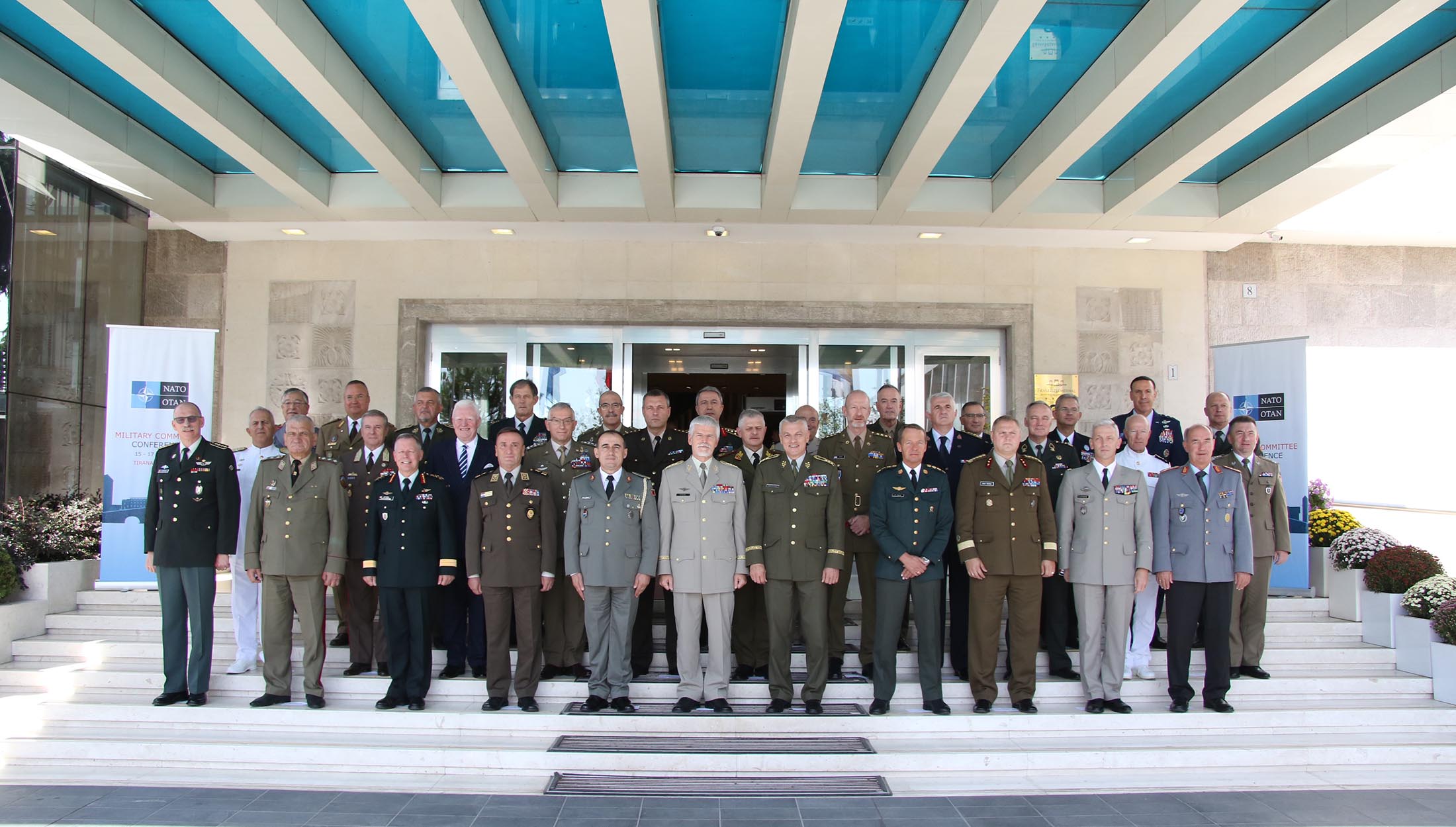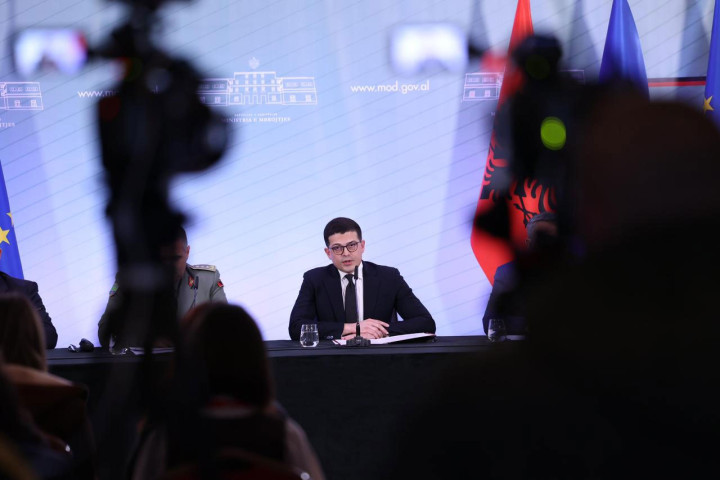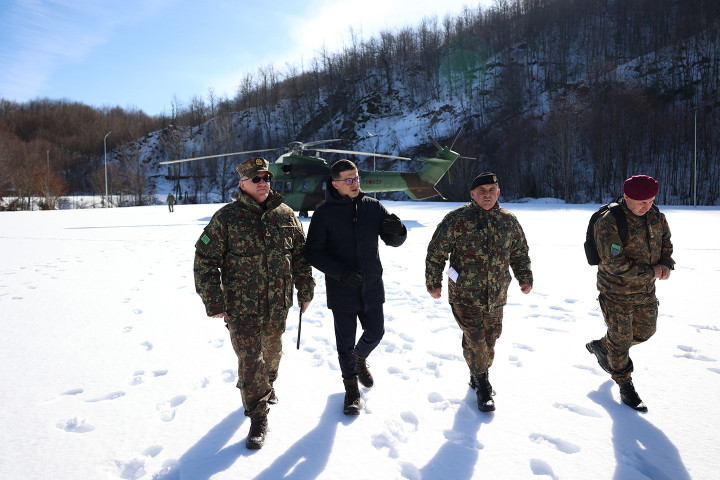Chiefs of Defence provide direction and guidance on key NATO priorities

General Petr Pavel, Chairman of the NATO Military Committee, opened the Military Committee Conference by thanking Albania for its hospitality and for all the hard work that had gone into the hosting and organising of the event. General Pavel also expressed his gratitude for ''Albania's contributions to NATO's shared security and the valuable role Albania plays in promoting cooperation and stability in the Western Balkans''.
The twenty-nine Allied Chiefs of Defence, the Chairman of the NATO Military Committee and the Albanian Prime Minister then held a moment of silence to honour the victims of the recent attack on the London tube, the Romanian soldiers killed and wounded in the attack against their convoy in Kandahar, Afghanistan and all the men and women who have been killed or wounded in the line of duty.
The Prime Minister of Albania, Mr. Edi Rama, officially opened the NATO Military Committee Conference. Taking the opportunity to address the Chiefs of Defence, Prime Minister Rama highlighted that “this is the first meeting of the Military Committee in Albania, which makes it a special honour and particular pleasure for my country.” He also stressed that “Euro-Atlantic integration of the Western Balkans is the only way to achieve lasting security.”
Beginning the NATO Military Committee meeting with a session on NATO’s efforts in Projecting Stability, the NATO Chiefs of Defence discussed a number of concrete proposals with regard to military contributions to support a comprehensive, systematic and coherent approach. They welcomed the Hub for the South achieving its Initial Operational Capability, the important role it will play in improving NATO’s regional understanding and ability to anticipate crises in the region, and stressed the importance of continued cooperation with other relevant stakeholders, namely the European Union.
Subsequently, the Chiefs of Defence provided guidance to the International Military Staff and the Strategic Commands on the conceptual work done so far on the NATO Command Structure Review, with a view to ensure a fit-for-purpose, robust and agile NCS capable of responding to any threat from any direction.
The first afternoon session was dedicated to NATO’s operations. The NATO Military Committee members received a comprehensive briefing on the security and political situation in Afghanistan from General John W. Nicholson, Commander of NATO’s Resolute Support Mission and from Ambassador Cornelius Zimmermann, the Senior Civilian Representative. The Chiefs of Defence reconfirmed their continued support to Afghanistan and stressed that the Mission needed to remain conditions-based. They also recognized the need to fill the current CJSOR shortfalls.
The second part of the session was dedicated to NATO’s longest running mission, KFOR. For the past eighteen years, NATO has been committed to the security and stability of Kosovo. General Fungo, Commander of the KFOR Mission, addressing the Chiefs of Defence, emphasized that the security situation in Kosovo was stable but fragile, necessitating continued NATO’s engagement.
The Chiefs of Defence concluded the NATO Military Committee Conference by electing the next Chairman of the NATO Military Committee, Air Chief Marshal Sir Stuart Peach, the Chief of the British Defence Staff. He will take office in the summer of 2018.
Following the MC Conference, General Petr Pavel held with a joint press conference with Brigadier General Kollcaku, the Chief of Defence of the Albanian Armed Forces. Being in Albania, Chairman of the NATO Military Committee underlined that ‘with regard to the Western Balkans, the Chiefs of Defence expressed support to continued Euro-Atlantic integration of the region, including through closer military cooperation.” He also voiced his satisfaction with the frank discussions and ability to identify a clear way forward.
While in Albania, General Petr Pavel took the opportunity to meet with the President of Albania, H.E. Mr. Ilir Meta and the Minister of Defence Mrs. Olta Xhaçka.
Articles from Newsroom
Monday, 26 January 2026



Defence Minister Vengu hosts Belgian counterpart: Cooperation to strengthen our capabilities
Tuesday, 20 January 2026
Albanian Air force trains with the U.S. Air Force, focusing on rapid crisis response
Monday, 19 January 2026